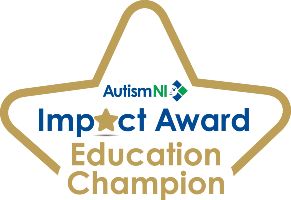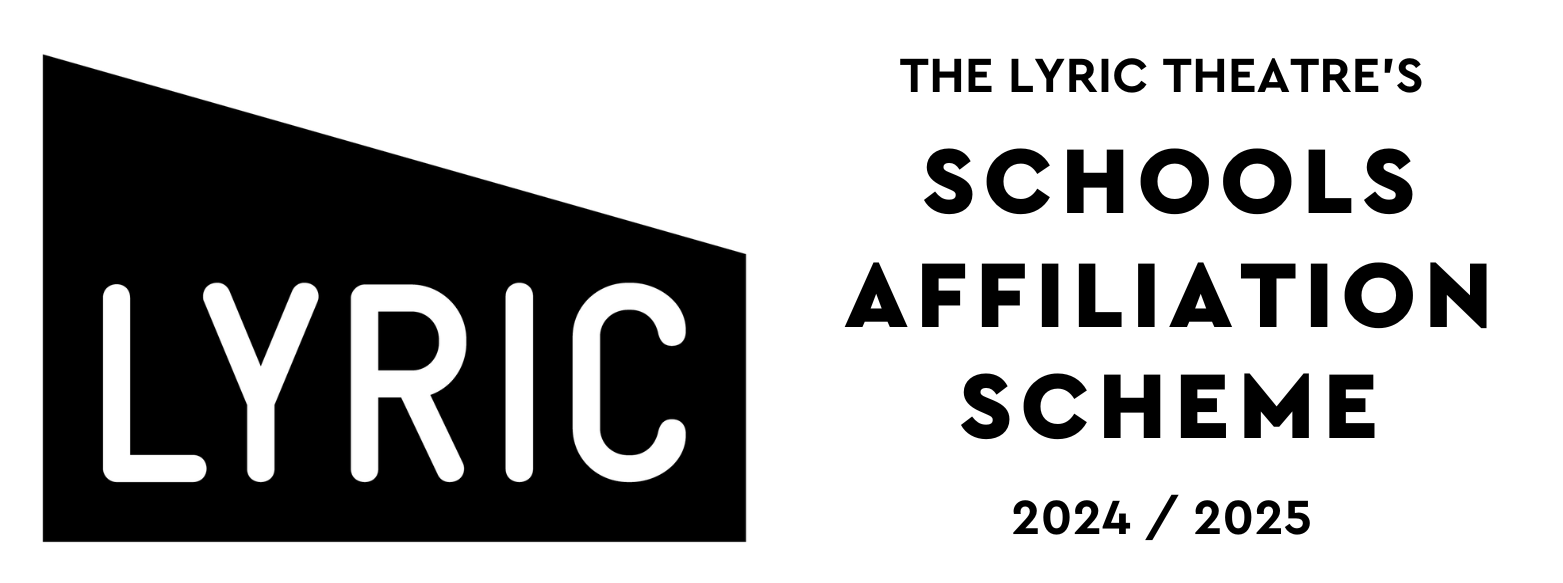English
SPECIFIC AIMS OF THE ENGLISH DEPARTMENT
The English Department aims to:
- promote a life-long love of reading;
- give pupils an insight into their own and others’ lives through Language, Literature and Media texts;
- develop pupils’ ability to express themselves clearly, logically, creatively and confidently;
- introduce pupils to a range of literary texts and genres;
- empower pupils to take charge of their own lives by making their command of both spoken and written language more effective; and
- provide pupils with opportunities for self-expression and creativity through creative writing, critical writing, public speaking and debating.
OVERVIEW OF KEY STAGE 3 CURRICULUM
At Key Stage 3, pupils explore language through a range of challenging and engaging texts from each genre: Poetry, Prose, Drama and Media. Pupils experiment with different forms of writing for different audiences and different purposes and explore the powerful role of the Media in modern society. At Key Stage 3, English is delivered over seven lessons per fortnight.
In Year 8 and Year 9, pupils complete two Continuous Monitoring tasks and two Tests (Christmas and Summer) throughout the year addressing the three areas of attainment: Reading, Writing, Speaking and Listening. The assessment of the cross-curricular skill of Communication is on-going through English at Key Stage 3 and is assessed formally by English teachers at the end of Year 10. In Year 10, pupils are awarded an overall Level in Communication based on a portfolio of four assessed pieces of work: two Reading, two Writing and two internally assessed Talking and Listening tasks. Year 10 pupils also complete a Summer Test in English.
In the teaching of English at Key Stage 3, pupils are given opportunities to bring set texts to life through the use of a range of Drama Strategies. ICT is also incorporated into the learning and teaching process in a purposeful manner. At Key Stage 3, teaching strategies include colour-coding, chunking, mind-mapping, target-setting, Big Picture, role-play, paired work, plenaries, group discussion, peer assessment and iPad activities. Teaching strategies ensure that learning is active and that pupils have opportunities to develop Thinking Skills and Personal Capabilities.
YEAR 8 CURRICULUM
In Year 8, pupils study the following topics:
- Unit One: Journeys (exploring your journey to St. Mary’s and beyond through literature)
- Unit Two: Personal and Creative Writing
- Unit Three: Narrative Poetry
- Unit Four: ‘Goodnight Mr Tom (Prose)
- Unit Five: Reading Media & Non-Fiction texts
- Unit Six: Fantastic Mr Fox (Drama)
- Unit Seven: Literacy
YEAR 9 CURRICULUM
In Year 9, pupils study the following topics:
- Unit One: ‘Private Peaceful’ by Michael Morpurgo (Prose)
- Unit Two: Functional/Persuasive Writing (letters, speeches, articles and blogs)
- Unit Three: The Poetry of Seamus Heaney
- Unit Four: ‘A Midsummer Night’s Dream’ by William Shakespeare (Drama)
- Unit Five: Reading Non-Fiction
- Unit Six: What makes a good short story?
- Unit 7: Literacy Skills
YEAR 10 CURRICULUM
In Year 10, pupils study the following topics:
- Unit One: The Study of Speech Writing
- Unit Two: Bog Child’ by Siobhan Dowd (Prose)
- Unit Three: People Poetry
- Unit Four: Introduction to 19th Century Unseen Prose
- Unit Five: Romeo and Juliet by William Shakespeare (Drama)
- Unit Six: Reading Non-Fiction
- Unit Seven: Literacy
Year 10 CCEA Accredited Communication Portfolio (Reading and Writing Tasks)
Communication is a cross-curricular skill and, as such, the Year 10 Communication Portfolio consists of the following tasks:
- Task 1: Writing a Speech
- Task 2: Response to non-Fiction Comprehension
- Task 3: Response to Poetry
- Task 4: Functional Writing
OVERVIEW OF KEY STAGE 4 CURRICULUM
At Key Stage 4, the English Department offers English Language and English Literature at GCSE Level. The study of both subjects is compulsory for all pupils. Pupils follow the CCEA specification for both English Language and English Literature. English Language and English Literature are delivered over eight lessons per fortnight.
GCSE ENGLISH LANGUAGE
Unit 1: Writing for Audience and Reading to Access Non-Fiction/Media texts (30%)
In this Unit, pupils are required to complete two sections: Section A and Section B. Section A requires pupils to demonstrate writing skills in a piece of personal or creative writing. This is a single task which requires pupils to produce an extended written response.
Section B is the Reading section and comprises a number of non-fiction comprehension extracts followed by four questions which require pupils to demonstrate reading skills, interpretative skills and analytical skills.
This Unit is assessed in the form of a written examination. Pupils will have 1 hour and 45 minutes to complete the assessment for this unit.
Formal assessment of this unit will take place at the end of Year 11. Pupils’ work in this unit will be externally assessed.
Unit 2: Speaking and Listening – Controlled Assessment (20%)
In this Unit, pupils will be assessed in three areas: an extended individual presentation, a role-play and a group discussion. Throughout the course, pupils will complete six Speaking and Listening activities. The final mark for this unit will be based on each pupil’s best three assessments.
This unit is assessed in the form of Controlled Assessment. Assessment of this unit will take place throughout Year 11 and Year 12. Pupils’ work in this unit will be internally assessed and externally moderated.
Unit 3: Studying Spoken and written Language – Controlled Assessment (20%)
In this Unit, pupils are required to produce two written responses:
1. The Study of Spoken Language (10%)
2. The Study of Written Language (10%)
In this Unit, pupils complete two controlled assessment tasks. In The Study of Spoken Language, they complete one written response that enables them to investigate the characteristics of, and influences on, two pieces of spoken language.
In The Study of Written Language, pupils complete one written response that enables them to demonstrate knowledge of characters, themes or genre in a literary text or texts.
This unit is assessed in the form of Controlled Assessment. Pupils will have a total of 2 hours to complete the two assessments for this unit. Assessment of this unit will take place throughout Year 11. Pupils’ work in this Unit will be internally assessed and externally moderated.
Unit 4: Personal or Creative Writing and Reading Literary and Non-Fiction Texts (30%)
In this Unit, pupils engage with Writing and Reading. There are two sections in the examination paper. Section A is Writing and there is one task. Section B is Reading and there are three tasks.
This Unit is assessed in the form of a written examination. Pupils will have 1 hour 45 minutes to complete the assessment for this unit.
Formal assessment of this unit will take place in December/January of Year 12. Pupils’ work in this unit will be externally assessed.
GCSE ENGLISH LITERATURE
Unit 1: The Study of Prose (30%)
Section A: Novel (Set Text: ‘Of Mice and Men’ by John Steinbeck)
In this section, pupils explore and respond to a modern novel they have studied. They communicate their knowledge and understanding of the novel.
Assessment for this Unit is a written examination at the end of Year 11 which lasts 1 hour 45 minutes. The Section A part of the examination lasts 1 hour and is worth 20% of the marks for this qualification. Pupils answer one question from a choice of two on the novel.
Section B: Unseen Prose
In this section, pupils explore, respond to, and learn how to analyse and evaluate an unseen nineteenth-century prose extract.
The Section B part of the examination lasts 45 minutes and is worth 10% of the marks for this qualification. Pupils should spend 15 minutes reading the extract and 30 minutes writing their response to the set question.
This Unit is assessed in the form of a closed-book written examination. Pupils will have 1 hour 45 minutes to complete the assessment for this Unit.
Assessment of this Unit will take place at the end of Year 11. Pupils’ work in this Unit will be externally assessed.
Unit 2: The Study Of Drama and Poetry (50%)
Section A: Drama (25%) (Set Text: 'Blood Brothers' by Willy Russell)
In this section, pupils explore and respond to a play they have studied. They communicate their knowledge and understanding of a play by a modern dramatist.
Assessment for this Unit is a written examination at the end of Year 12 which lasts 2 hours.
The Section A part of the examination lasts 1 hour and is worth 25% of the marks for this qualification. Pupils are permitted to bring an unannotated copy of their chosen play into the examination. They answer one question from a choice of two on each play.
Section B: Poetry (25%)
In this section, pupils explore and respond to a collection of poems they have studied in the ‘Relationships’ anthology provided by CCEA. They learn how to analyse, evaluate, and compare and contrast.
The Section B part of the examination lasts 1 hour and is worth 25% of the marks for this qualification. Pupils are permitted to bring an unannotated copy of their chosen anthology into the examination. There is a choice of two questions on each anthology and pupils must answer one. Each question involves analysing two poems from their chosen anthology.
Assessment of this Unit will take place at the end of Year 12 and is worth 50%. Pupils’ work in this Unit will be externally assessed.
Unit 3: The Study of Shakespeare – Controlled Assessment (25%)
Set Text: 'Macbeth’ by William Shakespeare
In this Unit, pupils explore and respond to a Shakespeare play they have studied. They communicate their knowledge and understanding of the play.
This Unit is assessed in the form of Controlled Assessment. Pupils will have 2 hours to complete their response to a given question.
Assessment of this Unit will take place during Year 12. Pupils’ work in this unit will be internally assessed and externally moderated.
OVERVIEW OF KEY STAGE 5 CURRICULUM
At Key Stage 5, the English Department offers English Literature at AS and A2 Level. Students follow the CCEA specification.
At AS and A2 Level, English Literature is delivered over eleven lessons per fortnight. At AS Level, students must successfully complete two modules. A further three modules must be successfully completed at A2 Level. This specification is made up of two parts: AS and A2. Students may take the AS as a final qualification without progressing to A2. However, to gain the full GCE, students must complete the AS and the A2 Units.
The AS Units make up 40% of the full A Level qualification.
The A2 Units make up 60% of the full A Level qualification.
The AS and A2 Units are as follows:
- AS 1: The Study of Poetry 1900 - Present and Drama 1900–Present
- AS 2: The Study of Prose Pre 1900
- A2 1: Shakespearean Genres
- A2 2: The Study of Poetry Pre 1900 and Unseen Poetry
- A2 3: Internal Assessment
AS ENGLISH LITERATURE
AS 1: The Study of Poetry 1900 - Present and Drama 1900 - Present (AS 60% / A2 24%)
Section A: 'The Study of Poetry 1900–Present
Study Focus: The Poetry of Seamus Heaney and Robert Frost
In Section A, students explore and respond to a range of poetry by Seamus Heaney and Robert Frost. Students learn to analyse, evaluate, and compare and contrast.
Section B: 'The Study of Drama 1900–Present
Set Text: ‘A Streetcar Named Desire’ by Tennessee Williams
In Section B, students communicate their knowledge and understanding of a play by a modern dramatist. We have chosen ‘A Streetcar Named Desire’ by Tennessee Williams from CCEA’s prescribed list of plays.
This Unit is assessed in the form of a written examination. Students will have 2 hours to complete the examination. Section A lasts one hour and Section B lasts one hour. Assessment of this unit will take place at the end of Year 13. Students’ work in this unit will be externally assessed.
AS 2: The Study of Prose Pre 1900 (AS 40% / A2 16%)
Set Texts: ‘Frankenstein’ by Mary Shelley
In this Unit, students communicate their knowledge and understanding of a novel.
This Unit is assessed in the form of a written examination. Students will have 1 hour to complete the examination. Assessment of this Unit will take place at the end of Year 13. Students’ work in this Unit will be externally assessed.
A2 ENGLISH LITERATURE
A2 1: Shakespearean Genres (20%)
Set Texts: ‘The Winter’s Tale’ by William Shakespeare
In this Unit, students analyse a single play from a chosen Shakespearean genre - Tragedy, Comedy, Problem Plays or Last Plays. Each question offers an extract as a basis for answering the question on the play as a whole. Students will explore the genre of Shakespeare’s ‘Last Plays’.
This Unit is assessed in the form of a written examination. Students will have 1 hour 30 minutes to complete the examination. Assessment of this Unit will take place at the end of Year 14. Students’ work in this Unit will be externally assessed.
A2 2: The Study of Poetry Pre 1900 and Unseen Poetry (20%)
Set Texts: ‘The Wife of Bath’s Prologue and Tale’ from ‘The Canterbury Tales’ by Geoffrey Chaucer (Section A only)
Section A: The Study of Poetry Pre 1900
In Section A, students explore and respond to the poetry of a poet they have studied. They draw on the skills developed in their AS study of poetry.
Section B: Unseen Poetry
In Section B, students demonstrate critical skill and personal engagement in response to an unseen poem. Students analyse poetic methods to determine how poets shape meaning.
In this section, students experience poems from different time periods and poems with various themes, forms and poetic styles.
This Unit is assessed in the form of a written examination. Students will have 2 hours to complete the examination. Section A lasts one hour and Section B lasts one hour. Assessment of this Unit will take place at the end of Year 14. Students’ work in this Unit will be externally assessed.
A2 3: Internal Assessment (20%)
In this Unit, students draw on skills developed in their AS study, in particular The Study of Prose Pre 1900, to communicate effectively their knowledge and understanding of the novel form. The Unit encourages independent study, wider reading and enjoyment of modern literature.
Students engage in a detailed study of two novels, one of which must be a twenty-first-century novel. Students are encouraged to select their own novels, with teacher guidance and support. They explore a theme and analyse how authors shape meaning. They also explore the contexts in which each novel was written and analyse connections across the texts. In writing the essay, students develop their research abilities and writing skills.
This Unit is assessed in the form of coursework. Students are required to submit a 2500 word essay. Assessment of this Unit will take place during Year 14. Students’ work in this Unit will be internally assessed and externally moderated.
ADDITIONAL SUBJECT INFORMATION
EXTRA-CURRICULAR PROVISION
The English Department contributes extensively and enthusiastically to the school’s extra-curricular provision with continued success. Extra-curricular activities include:
- Soroptimist Public Speaking Competition (Key Stage 5)
- Public Speaking Gold Award (Key Stage 4)
- Northern Ireland Young Journalist of the Year Competition (Key Stage 4)
- Junior and Senior Bar Mock Trial
- BPW Public Speaking and Debating Competition
- BBC Young Reporter
- Poetry Aloud Competition
- Young Writers of the Future Creative Writing Competition (Key Stage 3)
- KS3 Creative Writing Club
- Senior Book Club/Reading Group
- Junior Book Club/Reading Group
- Annual Theatre Trips
- Annual Visiting Authors
- Annual visit to Seamus Heaney: Homeplace for AS students
- Theatre Workshops
- School Musicals
- Cultural Visits and Trips
- Attending Sovereign Education A level Lectures in Stranmillis
FACILITIES AND RESOURCES
The English Department is situated on the C corridor in St. Mary’s. The English department works closely with the School Librarian to foster a love of reading. To this end, all Key Stage 3 classes attend a library class one period per fortnight. The library is also open in the morning before AM Registration, during break-time, lunchtime and after school until 4:30pm to enable pupils to borrow books and return books.
CAREERS INFORMATION
- Law
- Journalism
- Advertising
- Marketing
- Teaching (Primary and Secondary)
- Public Relations
- Author
- Broadcasting
- Copywriting
- Proof Reading









